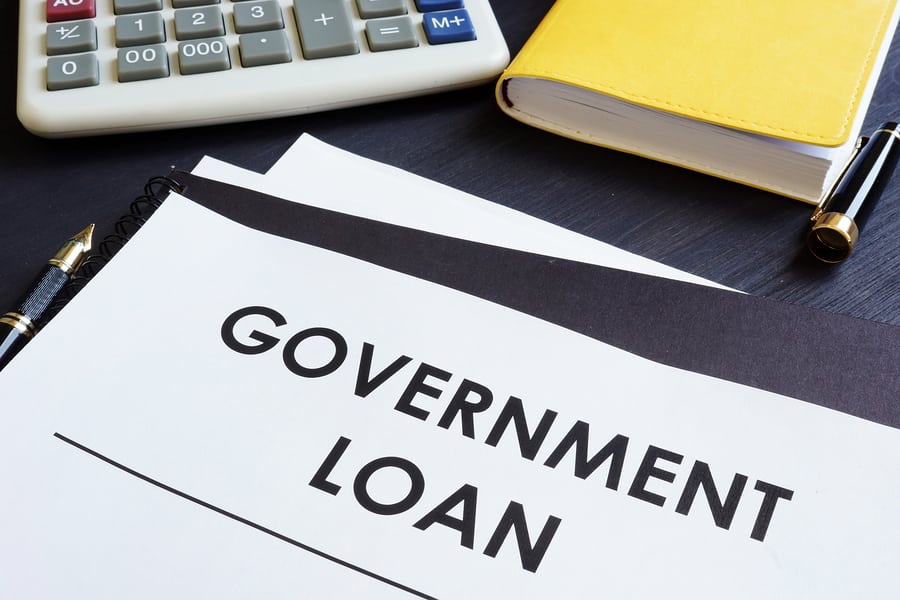
We all have heard about government loans but let’s face it, many of you have very little to zero knowledge about them. Don’t worry, we are here to help you!
In this blog, we will talk about government loans and everything related to it.
Keep reading!
What Are Government Loans?
The government of the U.S provides a wide range of loan programs via numerous departments to aid and support the needs of people, businesses, and communities.
A government loan offers capital for people who may not qualify for a private loan.
Here are some ways how government loan programs benefit:
- Enhance the overall national economy as well as the quality of life of its citizens
- Encourage innovation & entrepreneurship
- Provide protection against/relief from disasters
- Reward veterans & their dependents for past contributions and help with present requirements
Individuals as well as small businesses with no seed capital or collateral can even find the terms for a private loan too expensive.
Now, a low-cost government loan not just bridges this capital gap but also allows long-term benefits for the recipients as well as the nation.
Also Read: Do You Know These Facts About Loan Underwriting?
How Does A Government Loan Function?
Loans give benefits to both borrowers and to the U.S. government as a lender. Such loans typically avail capital to borrowers who require it and most importantly, return the initial capital to the government with interest.
Although not all such loans are funded by the government, they are undoubtedly secured as well as guaranteed by the government.
When the government funds a loan, it offers the loan capital as well. And this money is originated from taxpayers.
If the government only secures a loan, it completely cosigns with the borrower on money given by designated lenders such as private banks or government-sponsored enterprises (GSEs). This implies if the end-borrower defaults on loan repayment, then the government will have to repay the lender.
- Federal Or Private Loans
As the name suggests, federal loans are provided by the United States government, whereas private loans are provided by private lenders. Both loans have different sets of benefits, interest rates, and even repayment options.
Talking about government loans, they normally have low-interest rates as well as offer numerous other benefits including no credit history checks, deferred payment options, flexible income-based repayment plans, no-prepayment penalties, and partial loan forgiveness if the borrower selects public service. For instance, student loans in the United States can be forgiven after a period of years if the graduate works in a public or non-profit sector.
Coming to private loans, you may experience complex selection criteria as well as they do not offer many perks. Besides, the application process is also extremely time-consuming.
Considering every aforementioned factor, the government loan is the clear winner. They often have infinite attractive terms compared to private loans.
Read More: Everything You Should Know About Personal Loan
- Subsidized & Unsubsidized Loans
A Subsidized loan is a type of loan in which either a third party or a person other than the borrower, pays the interest on a loan for a fixed period of time.
For instance, the bank or the government (for Federal Direct Subsidized Loans), pays the interest while the borrower is in school, during a grace period after graduation, and if the borrower requires a loan deferment.
On the other hand, unsubsidized loans need the borrower to pay all interest costs, immediately from day one. Talking about federal student loans, borrowers are not required to demonstrate financial requirements for an unsubsidized loan, and in numerous cases may be allowed to borrow even more.
Types of Government Loans
The government of the United States provides loans in the numerous areas but the following are the most common ones:
- Housing & Urban Development Loans
The biggest portion of the government loan is for financing home loans. In general, it has the largest number of loan programs such as loans for buying homes, making homes energy efficient, interest rate reduction, and paying for home repair and improvements.
Read More: All You Should Know About In-House Financing
- Student Loans
These loans fund undergraduate & graduate college education or particular research-related courses. Research in a few areas of healthcare (including AIDS, contraception, infertility, nursing, and pediatrics) has also dedicated loan programs.
- Business & Industrial Loans
No countries or communities grow with a dull marketplace. Innovation, entrepreneurship, employment, and healthy competition are some vital factors that develop a country’s economy. Government business loans encourage all the aforementioned areas of development. Every business can avail these loans, be it small, mid-sized, or large.
Other than these 3 loans, here are more loans you can avail:
- Disaster relief loans
- Loans for veterans
- Agricultural, rural, and farm service loans
We hope this blog helped you acquire a clear picture of government loans!
